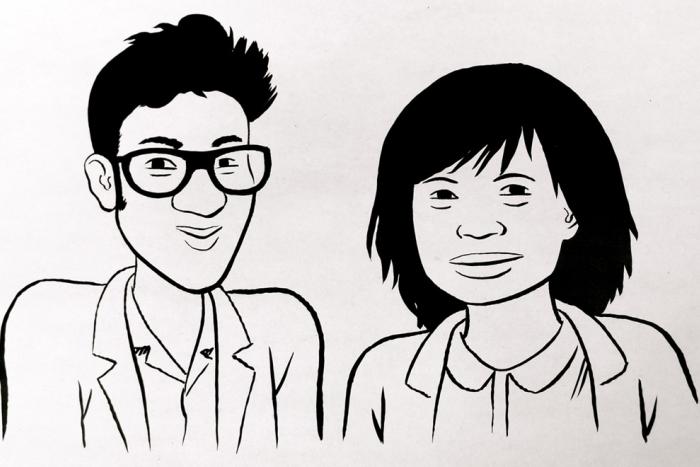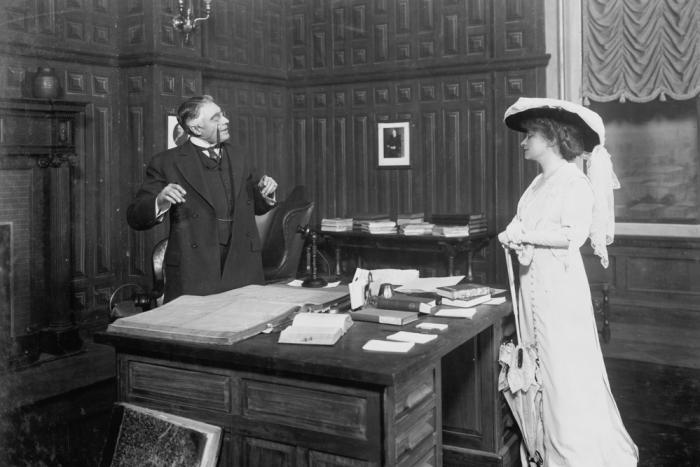In late 2007, I was starting to wonder if my Twitter feed and the sheer glut of information that erupted every day on my screen would soon overwhelm me. The glaring number of accounts I followed that incited my worry about an over-stimulated mind? Thirty-three. Half a decade later, I still have the same fear—but now follow eight hundred and fifteen.
Then again, five years ago the Internet was a different place. In part, like my exponentially wider social networks, it is a question of both scale and ubiquity. But for many others, it is also a question of how that scale has affected the web’s culture. Prominent blogger Anil Dash, for example, recently wrote about “The Web We Lost,” and described how certain technologies designed to enable sharing, adaptability and user control have been pushed aside in favour of proprietary approaches.
The latest sign of the trend Dash described was a spat between Instagram and Twitter that involved how the two services did or did not work well together, and to anyone who doesn’t use them both, it all sounds a bit inane. But as the details of municipal law often reveal the state of a city, a look at the undercurrent of web technology inevitably raises the question: is the internet actually better than it used to be?
It was that question which, just a couple of days before Dash, Tim Carmody, my longtime online friend and senior writer at The Verge, posed on Twitter. A literary scholar by training, Carmody has been writing about the theory and business of technology and media for some time. What generated the query was, oddly, just the usual web frustration. While Googling something simple, Carmody was presented with an annoying pop-up for Black Jack poker or some such. It prompted him to ask his 10,000 or so Twitter followers whether the web was better or worse than five years ago—and as the year draws to a close, it struck me as an interesting moment to inquire whether the web is worse than before and why.
“There is a sense that the scale and culture of these things—the feeling of social networks—has changed since five years ago,” says Carmody, speaking from New York. “And that issue of scale becomes really important. You had a much more intensive relationship with a small number of people.”
The issue of both bigness and ubiquity has been at the root of so many changes, not least is the shift in which staying on top of both news and friends’ updates online has become an essentially futile endeavour. You catch what you can, and you miss what you miss, and it’s an approach Carmody suggests is simply about survival.
“That’s how we’ve learned to cope with this scale,” he says. “It’s like reading every sign as you walk down a street in a big city; it’s impossible. We take things at a glance, gloss over things, and dip in and dip out.”
There has of course been endless debate over whether this constitutes progress, and sadly much of it has been reactionary, either hailing the web as cyber-utopian reorganization of our priorities, or seeing it as the downfall of both attention and intelligence. Each response is too extreme to adequately capture the truth. But the sometimes overwhelming nature of the contemporary web does suggest that cycle in which technology shifts from being a solution to its own problem—as happened to the machine factory, the car and the television before—has occurred much more quickly with the internet.
In my more optimistic moments, I believe this is because the internet is more fundamentally transformative than any of those other technologies—or, at the very least, is transformative far more quickly and ubiquitously. But this kind of rhetoric of both revolution and social amelioration has accompanied the web since the very beginning, and is starting to sound more than a little false. As noted cyber-skeptic Evgeny Mozorov likes to point out, Gordon Brown once said that had the Internet been widespread in the 1990s, the Rwandan genocide would have never happened—an assertion so clearly absurd now, it can be reduced simply by uttering the word ‘Congo.’ Even in the short time since the first dotcom boom, the lie has been put to the dreamlike hopes for the web, as it’s run headlong into geopolitics, history and economics.
Perhaps it is that last field that has most obviously changed the web. Financial concerns have done what they do, and the lure of money has made the web proliferate not only in size, but scope and presence, too. With the spread of mobile, the web is no longer limited to certain spaces; it is always with us, even when we aren’t connected to it, infiltrating our perception of reality as the book did before it. Yet more than just this persistent, multi-modal ubiquity of digital technology is a change in culture, too.
This is the paradox of the contemporary internet, in which the structures through which social, political and commercial activity occur are monetized in ways that seem, if not exploitative, then at least remarkably traditional and counter to the web’s early goals.
“A lot of what we’re talking about, as Anil was talking about, is a shift from the open web or the do-it-yourself web to big, big services,” says Carmody.
“Facebook, Twitter, Tumblr, Netflix, Google’s suite of products are much bigger than they were, and have logics of scale and logics of profit motive that changes their character—that is very different than the web was five years ago. There’s also much less of an emphasis on doing it yourself, or learning a bit of code or markup.”
Carmody is clear to point out that this has enabled far more people to get online and do things that they want to than before. That you can have an online presence without ever having to bother with blogging software, let alone programming languages is a boon for accessibility, both in terms of technical familiarity, but class and language, too. Yet ceding control in this way has made our ability to re-purpose or deliberately mis-use the structures of the web more difficult. Hacking together a site that pulls in bits of arcane, intriguing data is something you simply can’t do with Facebook, just as having complete control of your images simply isn’t an option anymore with Instagram.
This is the paradox of the contemporary internet, in which the structures through which social, political and commercial activity occur are monetized in ways that seem, if not exploitative, then at least remarkably traditional and counter to the web’s early goals.
“The issue here is the two sides of democracy,” says Carmody. “On one, you have the idea of close to universal participation with low barriers to access, versus democracy as a kind of autonomy that embodies democratic values, including openness and a certain level of deliberation.” Put another way, universal suffrage and an informed, engaged electorate are never necessarily linked, and the web is no different.
For my part, I always had a lingering hope that the internet wouldn’t fall prey to these very ordinary, seemingly inevitable issues. When Carmody’s initial question was posed on Twitter, I also answered, suggesting that it was much easier five years ago to believe that the web might produce something fundamentally, almost unrecognizably different, a sentiment that he expanded upon.
“In a way what has most changed was our belief in the democratic advocacy of the web—the idea that these technologies would actually help us to solve political problems, rather than just pose them,” he says. “I’d argue politics haven’t been so much transformed as translated on the web, and the biggest difference between my attitude about the Internet is that five years ago, I thought it was going to get better; today, I don’t have that same sense.”
Given that many people responded in the same way, what is it, then, that has caused so many to share the opinion that this once promising medium will only continue to degrade? One answer, strangely enough, is to be found in photo sharing service Instagram. Looking at Instagram’s controversial new terms of service, The Atlantic’s Alexis Madrigral argued that this should make us want to pay for software; to not do so, Madrigal suggested, was to leave ourselves constantly at the behest of companies with their own motives.
It is an odd moment. Here we have a still-new medium and social field that, at its core, promised us universal access and a reformed, virtual public space, ideally becoming something that would upend not only traditional notions of power and economics, but social relations too. Yet here we also are, presented with the very pragmatic view that if we want rights and privacy in this new ‘space,’ we must be willing to pay for them, a view that seems only to replicate the ills of the past. In a sense, it is the individualist rhetoric of Web 2.0 meeting the practical discourse of contemporary capitalism—and the vague, lingering hope for something actually new simply isn’t even on the horizon. It’s a stark reversal from what came before.
“In the ‘90s we had this belief that information technologies would break down the walls between people and enable trade and new professions, and almost sort of solve the problem of late industrial capitalism,” says Carmody. Yet we know that, while this might be true for those who might self-identify as Richard Florida’s ‘creative class’, for most it now rings hollow.
“You don’t have to believe that the web is the ‘tool of revolution from below’ to say that a lot of the feeling of global transformation of capitalism is oversold,” Carmody says. “There’s always a dynamic between expectation and reality, and in a way maybe our expectations have shifted to be more nuts and bolts and practical. Today, the Internet is more like a fundamental infrastructure of our lives, like telephones or the power grid, with all the attendant assumptions of taking it for granted. It just works, so I’m not going to ask so many questions of it.”
Five years ago, I could never have imagined that the web would be like it is today. In a sense, that was exactly what I wanted. Faced with the colossal environmental, social and personal effects of modern politics and economics, I, like so many others I know, craved something fundamentally different. This new, mystical thing called the web, part space, part tool and part media, seemed the ideal thing to overthrow the old, and with each successive upheaval in media, geopolitics or social convention, it felt like we were inching our way there. Yet, given the way so many of the services we use online seem inextricably linked to the old guard, whether finance, media or traditional politics, that idealism now seems especially naïve.
“A kind of tonic to all this, that’s a bit more neutral and a bit more sour,” he says “is this: let’s believe in the future; because we have nowhere else to go.”
But rather than some kind of corruption of a once-pure thing, perhaps the state of the contemporary web and its place in our society was inevitable. Maybe the sort of gritty wrangling over rights and privacy that Instagram raises are not signs of something gone wrong, but a symbol of how the idea that the Internet—itself a product of history, social forces, ideology and money—could never somehow escape those things. The web is now—and always was—a site for the same social struggle as any space in which social and political relations take place. And just as homeless shelters get less play than highways, and environmental protections get less attention than GDP growth, the details of what makes the internet tick and what makes it great will have to be subject to awareness campaigns, activism and the unending fight to make things better.
For his part, Carmody is still optimistic about the role the web can play in broader social struggle, and his faith stems from the fact that throughout all history, people have worked with the tools at their disposal.
“I still embrace and believe in the things that can be done on the internet, even if some of those beliefs are a little bit less utopian or idealistic than they were before,” he says. “The internet is a thing that all of us are doing. It’s companies and protocols, but it’s also individual choices that are made, and it’s that which makes me believe that things are a bit less predictable than they were, because that group of people is much more diverse now.”
Maybe it’s just that. We were given what felt like a shiny new toy, and like kids a few days before Christmas, spent an inordinate amount of time imagining how everything was going to be so much better once we finally had it. As the reality set it in, however, it has become clear that it is not the internet that has failed us, or economics or politics that have, in some clear, neat way, corrupted it. Rather, it was our expectations were flawed. It was our belief that the Internet was somehow neither part of the world, nor subject to its rules that was our mistake. The world, like its mirrored reflection online, is a messy, incomprehensibly complex place, and the best we can do is muddle through it and effect improvement where we might.
Now, clear-eyed and wiser, we have little other choice than to accept things as they are and then try change them. As for our dreamy rhetoric, Carmody says it’s time for something both more pragmatic, but equally hopeful.
“A kind of tonic to all this, that’s a bit more neutral and a bit more sour,” he says “is this: let’s believe in the future; because we have nowhere else to go.”
--
Art by Takeshi Murata






